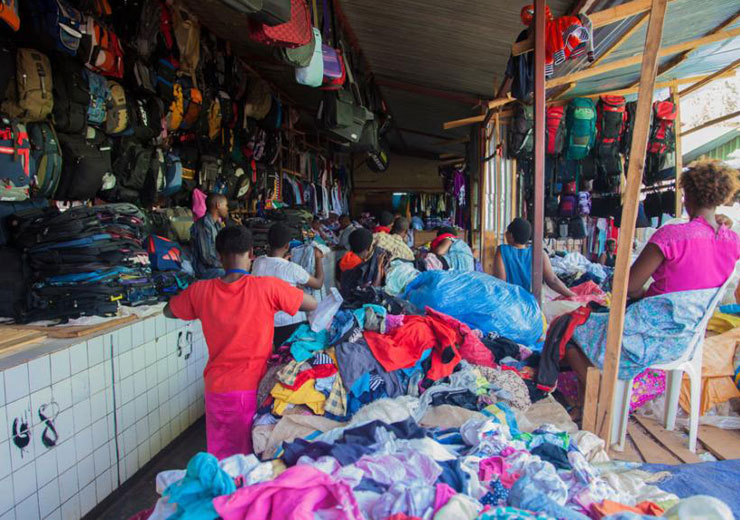Is Rwanda just obstinate? Or is there something that the Kigali administration is seeing in this used clothes ban that the rest of the regional lot can’t? What is it that is so deep that a ‘tiny’ Rwanda has to stand up to all the threats from the ‘mighty’ US?

The East African Community (EAC) ship set sail from the US coastal waters with six crew members on board. Destination was home (EAC) and the crew members were Uganda, Kenya, Tanzania, Rwanda, Burundi and South Sudan.
The year was 2016 and EAC leaders had chalked up more effort toward the fast-tracking of regional integration than never before. The sextet crew members, brimming with optimism, chanted patriotic slogans in praise of EAC after they had resolved to end importation of used clothes, locally known as mivumba, mainly from the US.
The leaders of the region had put their signatures to one paper affirming their resolve to push through with policies that would promote the region’s textile industry. Each country was to develop own local textiles industry and promote them so that the citizens of the region would not need to buy “clothes that a white man died in.”
Kenya, Uganda, Rwanda, Burundi, Tanzania and South Sudan decided to fully ban imported second-hand clothes and shoes by 2019, arguing it would help member countries boost domestic clothes manufacturing. The ban was envisaged as part of the EAC Vision 2050 and the Industrialization Policy to enhance a manufacturing sector that currently contributes 8.7% to the regional Gross Domestic Product to 25% by 2032.
As signatories to the AGOA trade programme–which offers them duty-free access to the US market–their decision ‘violated’ the conditions, including eliminating barriers to US trade and investment, among others, the US said.
By the time the ship docked at the East African coast, some of the leaders were already feeling awkward about the decision and moved to rescind. Burundi, Kenya and South Sudan opted out, leaving a tough talking Paul Kagame anchoring Tanzania and Uganda in a defiance mode.
Briefing the media at the time, the acting head of economic and regional affairs at the Africa Bureau of the US State Department, Harry Sullivan, said the office of the US Trade Representative could review trade benefits to Uganda, Rwanda and Tanzania under AGOA after a complaint by US interests about an East African ban on imports of used clothing.
Tanzania and Uganda found excuses up their sleeves and withdrew but not Rwanda, whose leader Paul Kagame stated that his country will proceed with the ban despite threats from the US. Kagame said Rwanda will choose to grow its local textile industry at the expense of subscribing to AGOA.
“This is the choice we find that we have to make. As far as I am concerned, making the choice is simple, we might suffer consequences. Even when confronted with difficult choices, there is always a way,


 The real estate 'gospel' according to Dr. Sudhir Ruparelia: Timeless real estate investment advice from the billionaire property mogul
The real estate 'gospel' according to Dr. Sudhir Ruparelia: Timeless real estate investment advice from the billionaire property mogul